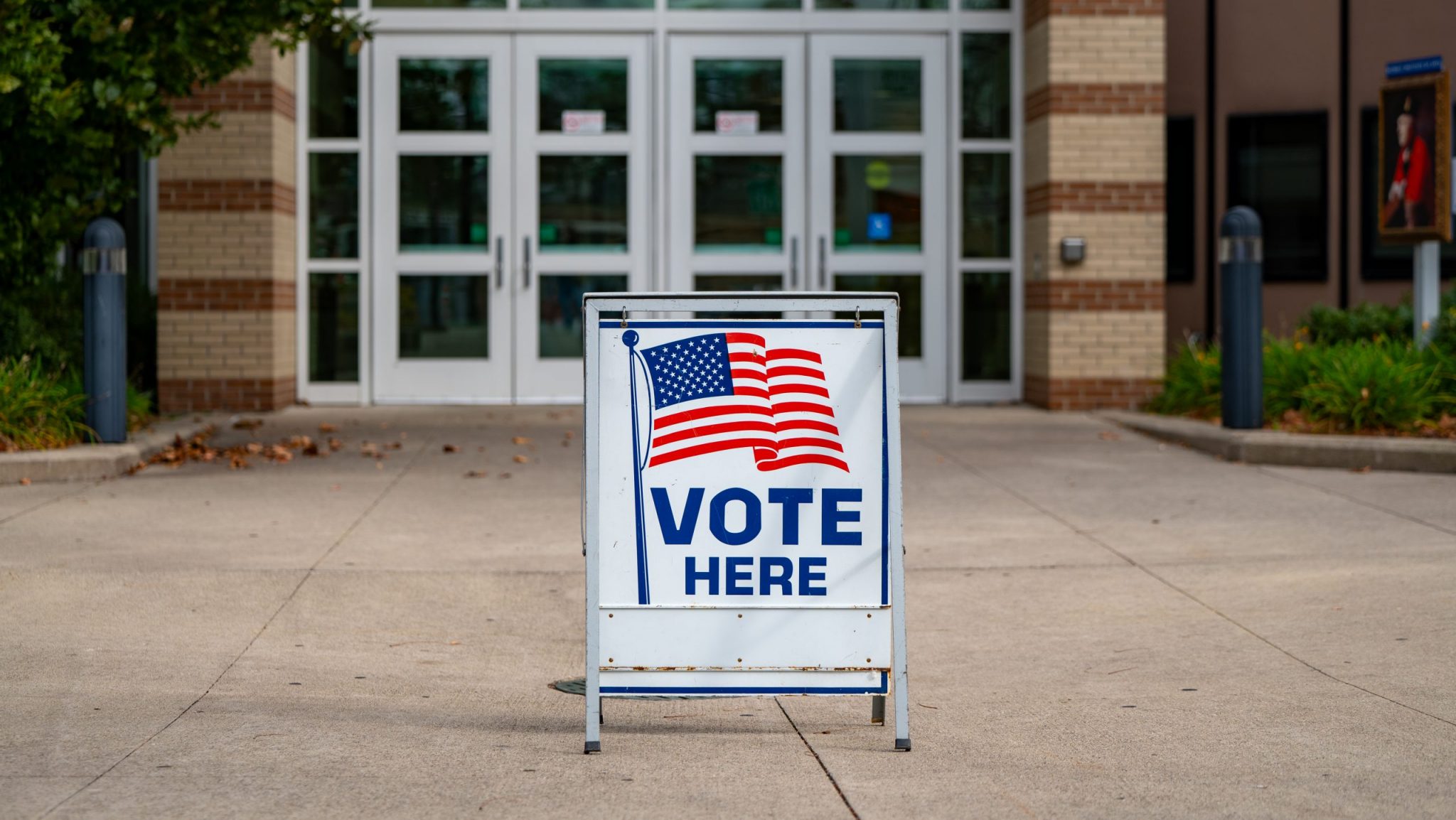Detroit Today: Should Michigan’s political maps be changed?
A frantic redraw of the legislative maps in and around Detroit means the 2024 election season is off to an interesting, and perhaps perilous start.

A "Vote Here" sign outside a voting location in Michigan on Election Day 2023.
In 2018, Michiganders voted to have our legislative maps drawn by an independent commission of state residents instead of by our political representatives who could — and did — manipulate the maps to make it easier for people in their party to maintain power.
But despite the positive change, some believe the independently-constructed political maps were deeply flawed, alleging that the violated the federal Voting Rights Act and the 14th Amendment’s Equal Protection Clause by drawing majority-Black voters into districts with majority-white voters in Oakland and Macomb counties.
Now, a federal court is requiring the Michigan Independent Citizens Redistricting Commission (MICRC) to redraw more than a dozen state House and Senate districts around Detroit.
On today’s show, Detroit Today host Stephen Henderson spoke with a variety of guests surrounding the case to discuss its affect on Detroiters and Michiganders across the state.
Subscribe to Detroit Today on Apple Podcasts, Spotify, Google Podcasts, NPR.org or wherever you get your podcasts.
Guests:
Wayne County Commissioner Jonathan Kinloch represents District 2, which includes several Detroit neighborhoods. He says the vote of Black Detroiters was harmed by the maps created by Michigan’s redistricting commission.
“The maps that were drawn, did break or crack years of precedence, years of understanding, as it relates to the importance of Black representation,” Kinloch said.
Katherine McKnight is an attorney for the redistricting commission. She says there is a lot of confusion among judges and lawyers as it relates to creating fair political maps.
“We believe this area of law has incredibly high stakes, incredibly high complexity, but really low clarity,” said McKnight.
Edward Woods III is the executive director of the Michigan Independent Citizens Redistricting Commission. He says the commission believes it did not violate the Voting Rights Act.
“We are going to comply with the court, but we believe we did follow the guidelines,” Woods said.
John Bursch is an attorney with Bursch Law. He is one of the attorneys who brought the challenge to the state House and Senate maps. He says the commission’s maps hurt Detroit’s Black representation.
“What the commission did is it relied on experts who pushed general election data instead of primary data to the detriment of Black voters in Detroit,” said Bursch.
Listen to Detroit Today with host Stephen Henderson weekdays from 9-10 a.m. ET on 101.9 WDET and streaming on-demand.
Trusted, accurate, up-to-date.
WDET strives to make our journalism accessible to everyone. As a public media institution, we maintain our journalistic integrity through independent support from readers like you. If you value WDET as your source of news, music and conversation, please make a gift today.

